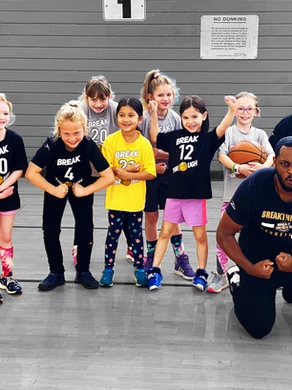
Unleashing the Power of Confidence in Youth Sports
In the world of youth sports, confidence isn’t just a state of mind; it’s the secret ingredient that can transform an aspiring athlete into a true champion. As parents, coaches, and mentors, it’s crucial to understand the profound impact confidence can have on young athletes. In this article, we’ll explore why confidence is the key to success on and off the field, and how we can nurture it in our young sports stars. Let’s embark on this journey with insights backed by reputable sources in the world of sports psychology and youth development.
The Confidence-Competence Loop
Imagine a young soccer player stepping onto the field. They’ve practiced their dribbling, shooting, and passing skills tirelessly. But what sets them apart? It’s the unwavering belief in their abilities – confidence. According to Albert Bandura’s self-efficacy theory, confidence is the foundation upon which competence is built. When young athletes believe they can succeed, they’re more likely to put in the effort required to improve their skills.
Confidence and Performance
Numerous studies in sports psychology have highlighted the correlation between confidence and performance. Dr. Robin Vealey, a renowned expert in the field, emphasizes that athletes who believe in their abilities are more likely to set and achieve ambitious goals. This self-belief fuels determination, resilience, and the capacity to perform under pressure.
Resilience in the Face of Challenges
Confidence doesn’t shield young athletes from setbacks or failures; instead, it equips them with the resilience to bounce back. Dr. Jim Taylor, a sports psychologist, underscores that confident athletes view challenges as opportunities for growth. They’re less likely to be deterred by defeat and more inclined to see it as a stepping stone toward success.
Building Confidence: A Collective Effort
As parents and coaches, we play a pivotal role in nurturing confidence in young athletes. Here are some strategies supported by experts in the field:
Positive Reinforcement: Offer constructive feedback that focuses on effort and improvement, not just outcomes. Dr. Carol Dweck’s work on the growth mindset underscores the importance of praising effort over innate talent.
Goal Setting: Help young athletes set realistic but challenging goals. Achieving these milestones boosts their confidence and motivation.
Visualization: Encourage athletes to visualize success. Dr. Daniel Gould, a sports psychologist, suggests that mental imagery can enhance confidence and performance.
Embrace Failure: Teach young athletes that failure is a natural part of growth. It’s an opportunity to learn, adapt, and become even stronger.
Supportive Environment: Foster a supportive team and family environment where athletes feel valued and encouraged.
Conclusion: Empowering Young Athletes
Confidence is the cornerstone upon which our young athletes’ dreams are built. It fuels their determination, enhances their performance, and equips them to navigate the challenges of sports and life with resilience. As parents, coaches, and mentors, we have the privilege of instilling this invaluable quality in our youth.
Let’s remember the words of sports icon Michael Jordan: “I can accept failure; everyone fails at something. But I can’t accept not trying.” Confidence gives our young athletes the courage to try, fail, and ultimately succeed. It’s the fuel that powers their journey to greatness.
So, as we stand alongside our young sports stars, let’s nurture their confidence, celebrate their successes, and help them become not just skilled athletes, but confident champions in every aspect of their lives.
Join Breakthrough Sports: Discover how our youth sports programs can empower your child on their journey. Join us and embark on this path to excellence, where we build not only skillful athletes but confident champions, instilling the power of confidence every step of the way!
Sources:
Bandura, A. (1977). Self-efficacy: Toward a unifying theory of behavioral change.
Vealey, R. S., Hayashi, S. W., Garner-Holman, M., & Giacobbi, P. (1998). Sources of sport-confidence: Conceptualization and instrument development.
Taylor, J. (2019). Confidence in sports: How to build it and why it matters.
Dweck, C. S. (2008). Mindset: The new psychology of success.
Gould, D., & Maynard, I. (2009). Psychological preparation for the Olympic Games.
